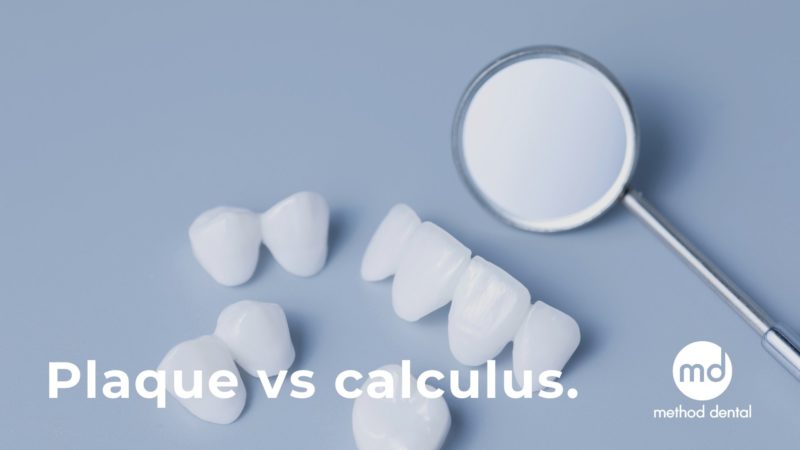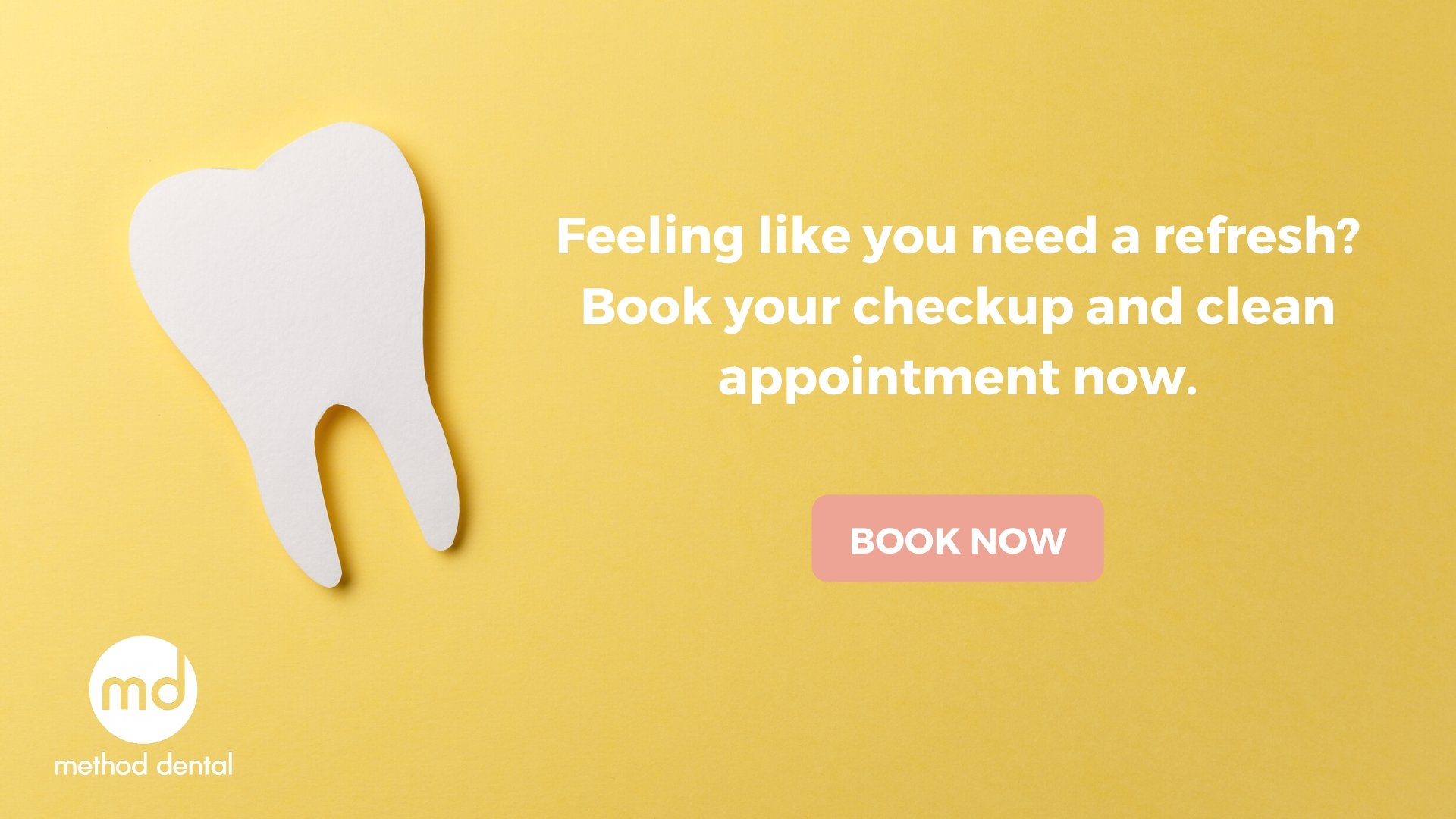Billions of tiny bacteria live inside your mouth, colonising your tongue, teeth and under your gums! Your mouth is dark and wet – the perfect breeding ground for some of these pesky germs… If these germs are allowed to do their thing, they’ll make plaque and calculus. But what is plaque and how is it different to calculus?
If you’ve been confused by this question before – you’re not alone! Most of our patients think they get a lot of “plaque build up” but they’re almost always worried about the calculus that has formed on their lower front teeth!
So, what’s the difference between plaque and calculus and why are they bad for you and your teeth and gums?
In this blog, we’ll take a deep dive into all things plaque and calculus and what you can do to keep them under control!
What is dental plaque?
Plaque is that sticky, colourless or pale yellow/white film commonly found between the teeth, on the front of teeth, behind teeth, on chewing surfaces, and along or below the gumline. Yep, plaque can be found pretty much everywhere! This sticky film is made up of millions of bacteria & proteins from your saliva.
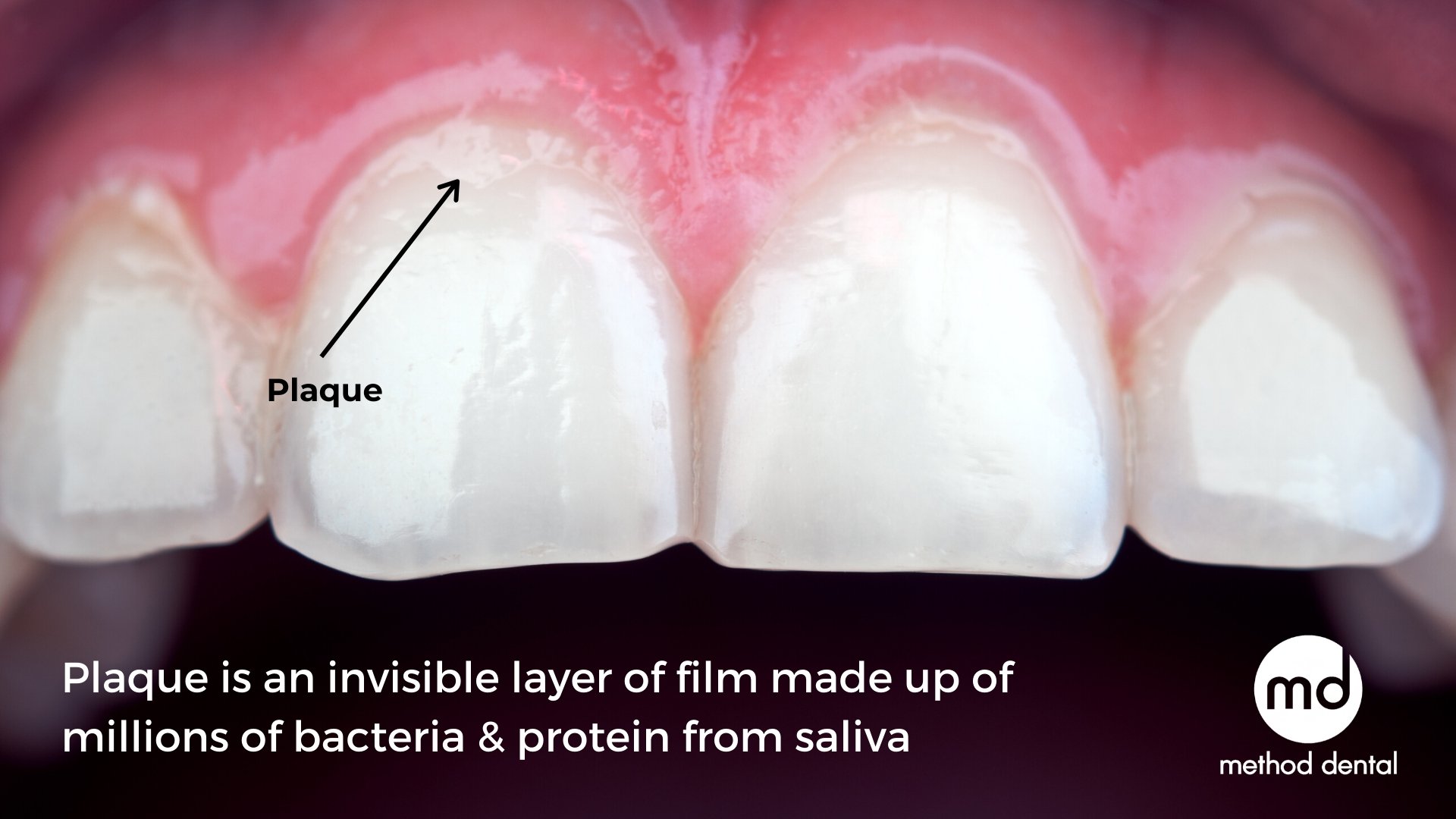
How does plaque form?
Plaque is always forming in our mouths and it starts forming just minutes after brushing your teeth! It can be hard to see plaque on teeth because it can be white/yellow. However, if you run your tongue along the front of your teeth in the morning before brushing, you might feel some furriness or rough areas.
Immediately after brushing, saliva starts to coat the surfaces of your teeth. Bacteria then attach to the proteins in saliva and over time, begin to spread and multiply. This means that you’ve got to keep brushing and flossing regularly to prevent the plaque from taking over your mouth.
The dangers of dental plaque
Plaque is the root cause of many oral health problems. The bacteria in plaque eat what you eat and drink. And they make acid. The more plaque on your teeth, the more acid there is. The acid then dissolves your tooth enamel and as a result, a cavity forms. This is how tooth decay grows.
Plaque along the gumline can also irritate the gums, causing them to become inflamed and bleed. This is known as gingivitis.
Gingivitis is the start of gum disease and at this stage, it is still reversible if you maintain good oral hygiene habits and visit your dentist regularly. Left untreated, it can progress to periodontitis, which is the advanced stage of gum disease. In addition to this, plaque can contribute to bad breath and it can also make your teeth appear yellow and dull.
Read more about gingivitis here.
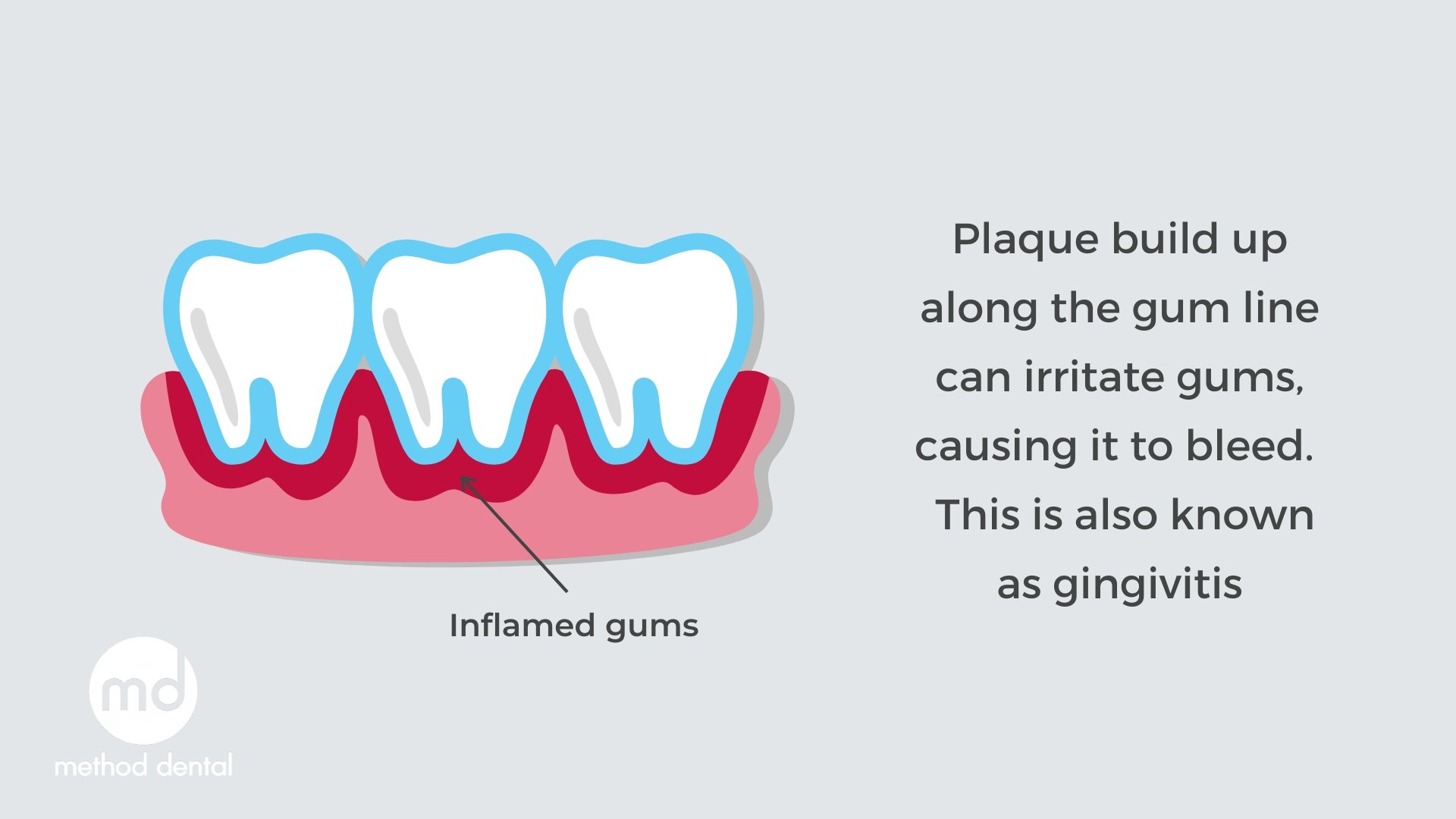
What is dental calculus?
Calculus is plaque that has hardened up over time, or mineralised. It’s essentially made up of calcium phosphate (deposited from your saliva) & dead germs. Once calculus is formed, it cannot be removed by brushing or flossing. This is why it’s important to visit your dentist for a professional clean regularly to remove any calculus buildup.
Depending on the quality and concentration of calcium in your saliva, calculus builds up at different rates in different people. As a result, some people may need a professional cleaning every 3-4 months. Some people may only need it once a year. It’s all variable and your dental health professional is the best person to determine the best intervals with you.
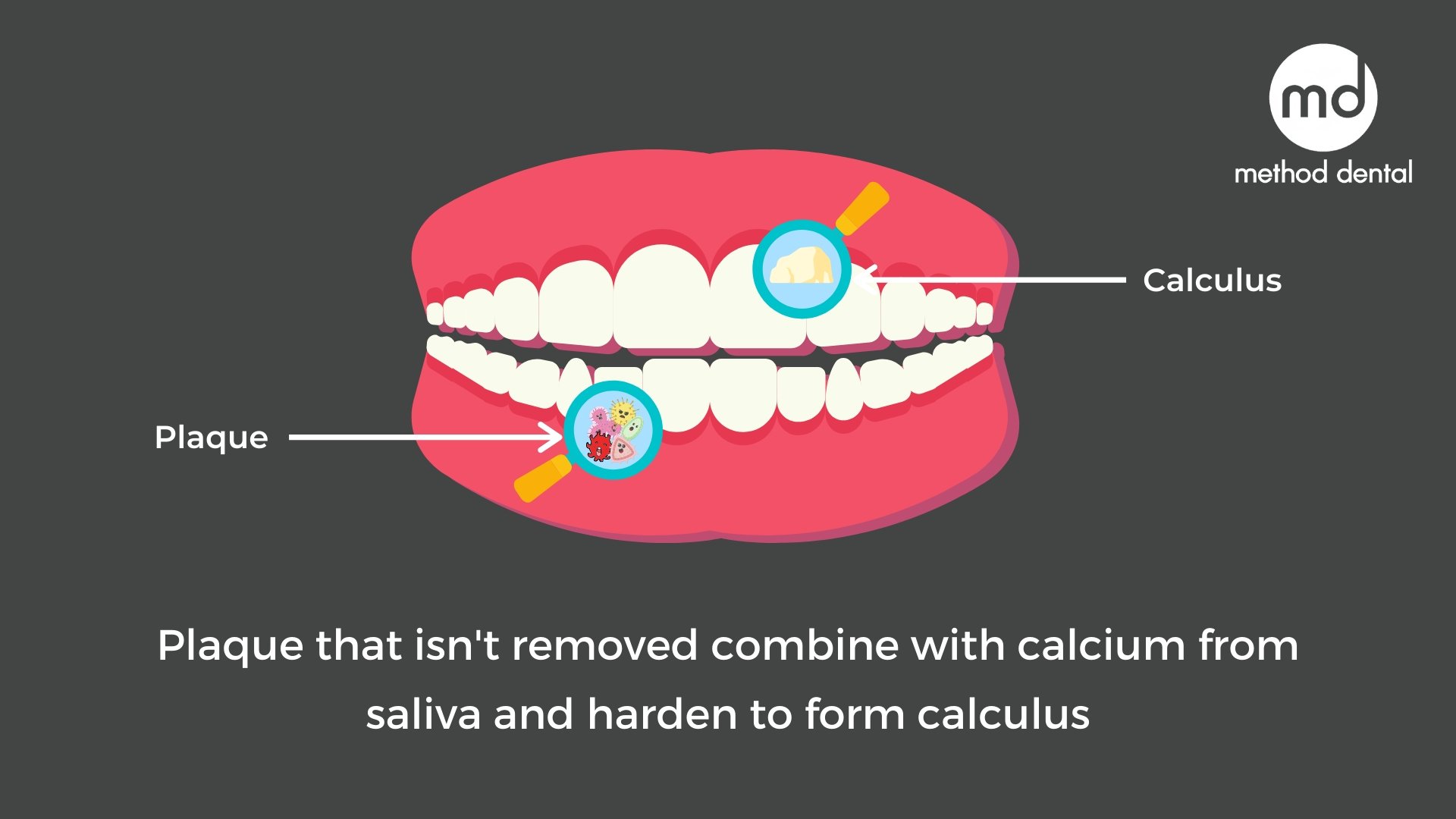
Why calculus can be harmful
Where plaque can be found, calculus can also be found. And it’s usually in the not-so-obvious places where you can’t see it – under your gums. Because calculus has a rough surface, it provides the ideal place for even more plaque to form!
The rough surface of the calculus, combined with more plaque, can irritate your gums. When your gums get annoyed, sometimes, it sets off a strong response from your immune system. When this happens, your gums get really inflamed and start to peel away from the teeth. Over time, your gums start to shrink, and so do the bones & ligaments holding your teeth in place. This is known as periodontitis. Periodontitis is advanced gum disease and if left untreated, it can get to a point where your teeth become so loose, they simply fall out.
Periodontitis is serious stuff. It usually doesn’t cause you any pain or symptoms until it is very advanced and abscess have formed. But it is also linked to other health conditions such as heart disease, diabetes and even Alzheimer’s Disease.
Read more about Periodontitis here.
The good news is, if gum disease is diagnosed early, it can be treated and reversed. This is why attending regular check-ups and cleaning at your dentist is so important because without a thorough check-up, you would never know if you suffered from gum disease. *Make sure your dentist does a thorough check for gum disease at every check up*
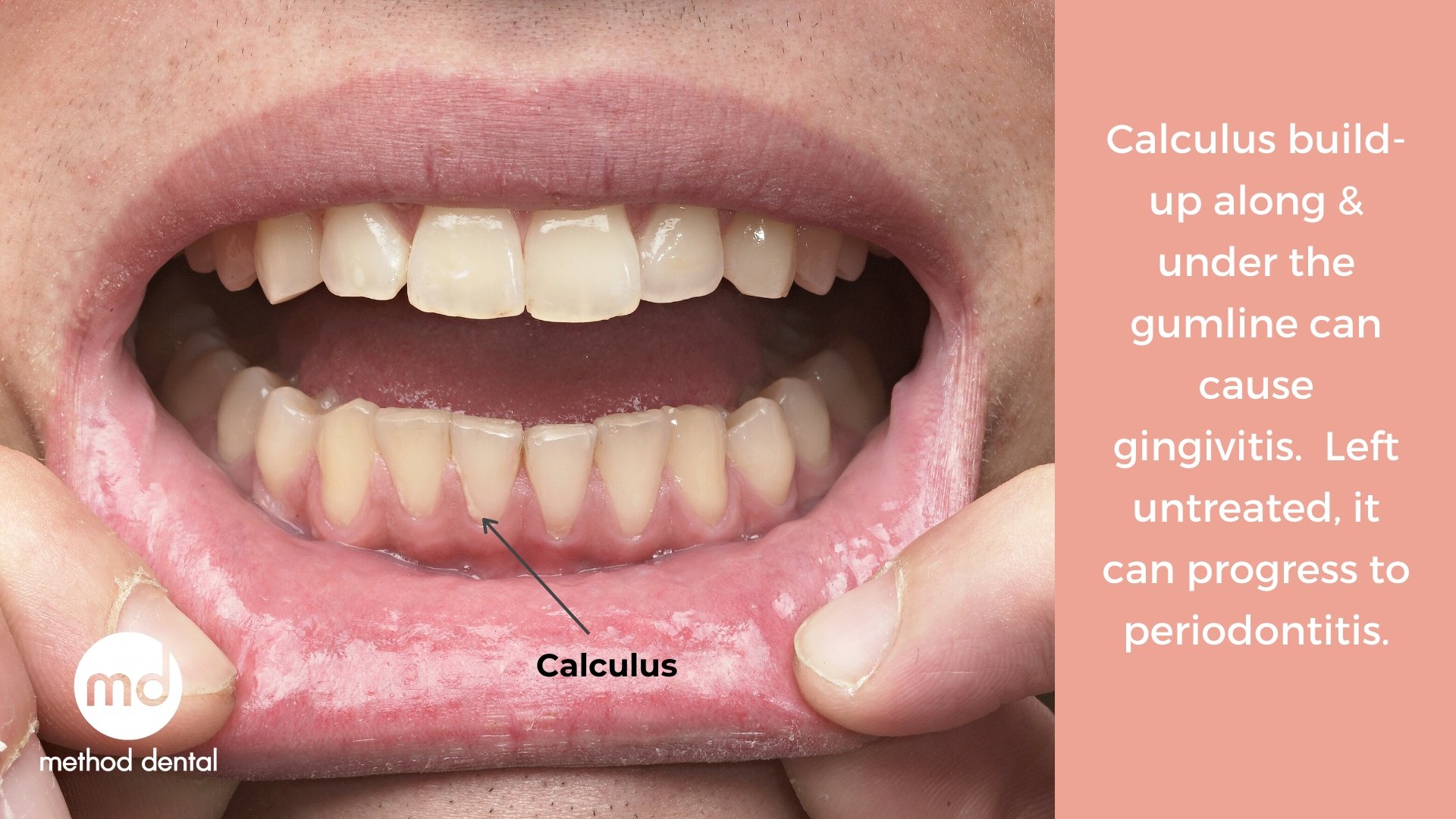
How to prevent plaque and calculus build up
Fighting plaque is super important in protecting and preserving your teeth and gums for a life-time. Tooth decay and gum disease are both mostly preventable, which means you have the ability to control what happens to your teeth and gums. Here are some simple things you can do to help prevent plaque and calculus build-up:
- Brush thoroughly twice a day and for 2 minutes each time to remove plaque from all surfaces of your teeth
- Floss at least once a day to remove plaque from in between your teeth and under the gumline where toothbrush bristles cannot reach
- Use an electric toothbrush (preferably one with a 2-minute timer & pressure sensor) as research shows an electric toothbrush is better at removing plaque by 21% compared to manual toothbrushes
- Limit intake of sugary foods and beverages
- Limit snacking. The more frequently you eat, the more frequently the bacteria in your mouth eat.
- Visit your dentist for a checkup and clean regularly. Calculus forms regardless of how well and how often you brush. And the only way to get rid of calculus to see your dentist for a professional clean.
As you can see, plaque and calculus are two very different things that can affect your oral health in different ways. Once you understand the basics and how tooth decay and gum disease work, you can make choices that tackle the problem at the root cause so that you can avoid suffering from these preventable diseases.
Jasmine Ooi BPharm
Co-Founder
Method Dental
with Dr. Grant McGrath BDSc
Co-Founder, Dentist
Method Dental


